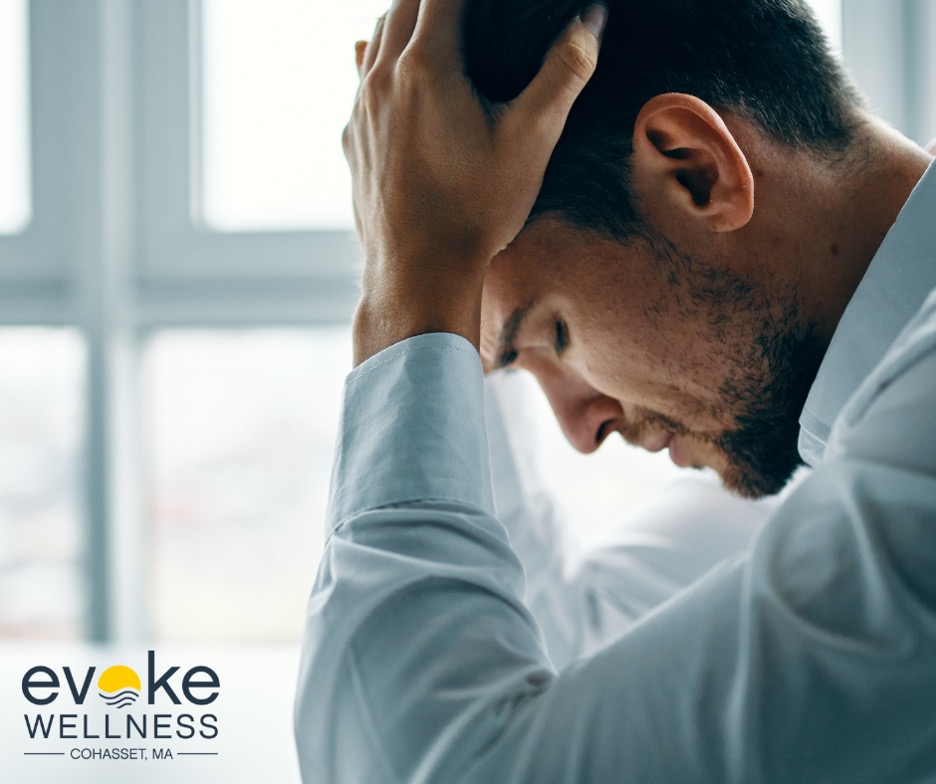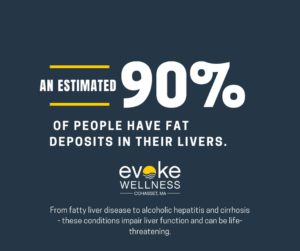You never thought it could happen to you. What began as an occasional drink at happy hour spiraled into daily cocktails just to take the edge off. Now you can’t make it through the day without downing rubbing alcohol from under your sink when the liquor cabinet runs dry. The statistics are staggering—over 30 million Americans will abuse alcohol or rubbing alcohol in 2024. But there is hope. Discover the startling similarities between the two types of alcohol along with signs, symptoms and treatment options like medical detox, residential rehab and individual therapy that can help you reclaim your life. Call us at (617) 917-3485 today or reach out online.
The Definition of Alcoholism
What is Alcoholism?
Alcoholism, or alcohol use disorder, is a chronic brain disease characterized by compulsive alcohol use, loss of control over intake, and a negative emotional state when not using. It’s a medical condition that requires professional treatment.
Signs & Symptoms
Common signs include drinking alone, making excuses for drinking, high tolerance, failed attempts to cut back, prioritizing alcohol over responsibilities, and experiencing withdrawal symptoms like nausea, sweating or shaking when stopping.
Effects on Life
Alcoholism severely impacts all areas of life – work, relationships, finances, and health. It increases risks for other issues like liver disease, heart problems, depression, and various cancers if left untreated. Getting help can prevent these devastating consequences.
Warning Signs of Alcoholism
Physical Symptoms
- Inability to control alcohol intake. Drinking more than intended frequently.
- Needing to drink increasingly larger amounts to achieve desired effects. Developing a high tolerance.
- Experiencing withdrawal symptoms like nausea, sweating or shaking when alcohol wears off.
Behavioral Changes
- Prioritizing drinking over other responsibilities and obligations.
- Continuing to drink despite clear negative impacts on work, relationships or health.
- Abandoning previously enjoyed activities and hobbies in favor of drinking.
Emotional Signs
- Irritability, mood swings and general personality changes when not drinking.
- Feeling an overwhelming craving or urge to drink alcohol.
- Trying but failing to cut back or quit drinking multiple times.
If you or a loved one are experiencing several of these warning signs, it may indicate an alcohol use disorder. Seek professional help from alcohol addiction treatment specialists.
Reasons Why People Drink
Peer Pressure & Social Norms
Many start drinking due to social pressures or to “fit in” with peers. Drinking alcohol is normalized in some social circles, making it harder to abstain. Refusing drinks can lead to feelings of exclusion.
Stress & Emotional Factors
People often turn to alcohol as a coping mechanism for stress, anxiety, depression or trauma. Drinking provides a temporary escape, but long-term issues remain unresolved.
Addiction & Genetics
Alcohol addiction has genetic links – those with family history face higher risks. Once addicted, alcohol cravings and withdrawal symptoms drive continued excessive drinking.
Curiosity & Experimentation
Especially among youth, curiosity about alcohol’s effects leads some to try drinking. What starts as experimentation can progress into dependence or addiction.
Rubbing alcohol versus alcohol
Composition Differences
Rubbing alcohol and consumable alcoholic beverages have very different chemical compositions. Rubbing alcohol contains isopropyl alcohol or isopropanol, while alcoholic drinks contain ethanol or ethyl alcohol.
Potency and Effects
Ethanol is less potent than isopropanol, with the latter being toxic if ingested. Consumable alcohol causes intoxication, while rubbing alcohol can cause organ damage, blindness and even death if ingested.
Addiction Risks
While both substances can lead to dependence and addiction, ethanol addiction is far more common. Rubbing alcohol has an unpleasant taste deterring recreational use.
Treatment Needs
Alcohol addiction treatment programs focus on behavioral therapies and support groups. Rubbing alcohol poisoning requires immediate medical attention and detoxification. Evoke Wellness Cohasset offers medical detox, residential rehab, and therapy for alcohol use disorders.
Health Complications From Alcohol Abuse
Liver Damage
Excessive alcohol consumption can lead to serious liver problems. With this level of alcohol consumption, an estimated 90 percent of people have fat deposits in their livers. From fatty liver disease to alcoholic hepatitis and cirrhosis – these conditions impair liver function and can be life-threatening.
Pancreatitis
Alcohol abuse increases the risk of acute and chronic pancreatitis, an inflammation of the pancreas causing severe abdominal pain, nausea and complications like malnutrition.
Cancer Risk
Drinking too much alcohol is a major risk factor for several types of cancer, including mouth, throat, liver, breast and colon cancer. The risk increases with the amount of alcohol consumed over time.
Brain Damage
Heavy alcohol use can have negative effects on brain structure and function, resulting in cognitive deficits, dementia, and an increased risk of stroke. Even moderate drinking can impact coordination and judgment.
Heart Disease
Chronic heavy drinking weakens the heart muscle, leading to heart failure. It also increases blood pressure and can cause irregular heartbeats, stroke and other cardiovascular problems.
Treatment for Alcoholism
Seek Professional Help
The first crucial step is recognizing you need support. Alcoholism is a chronic disease requiring specialized treatment, so don’t try to overcome it alone. Seek guidance from addiction professionals who deeply understand the recovery process.
Detoxification
To break physical dependence, medically-supervised detox is often necessary. This rids your body of alcohol while managing potentially dangerous withdrawal symptoms. Detox prepares you for comprehensive rehabilitation.
Rehabilitation Programs
Inpatient or outpatient rehab programs provide therapy, counseling, and strategies to achieve sobriety long-term. You’ll address root psychological causes while building a sober support network. Programs are customized for your unique needs.
Support Groups
Joining a support group connects you with others on the recovery journey. Alcoholics Anonymous is a renowned 12-step program offering community and shared coping tools. Having this understanding support system greatly increases your chances of lasting sobriety.
Overcome Alcoholism
Seek Professional Help
The first and most crucial step is reaching out for professional assistance. Alcoholism is a complex condition that often requires specialized treatment and support. Explore local rehabilitation centers, counseling services, or support groups designed specifically for alcohol addiction recovery.
Develop a Support System
Surrounding yourself with a network of supportive individuals can make a significant difference in your recovery journey. This may include family, friends, or others who have overcome similar challenges. Their encouragement and understanding can provide motivation during difficult times.
Embrace Lifestyle Changes
Overcoming alcoholism involves making conscious choices to adopt a healthier lifestyle. This may involve avoiding triggers, finding new hobbies or activities to replace drinking, and practicing self-care through exercise, mindfulness, or other stress-management techniques.
Be Patient and Persevere
Recovery is a process that takes time and commitment. Setbacks or relapses are common, but they do not signify failure. Approach each day with resilience, learn from challenges, and celebrate small victories along the way. With determination and support, lasting sobriety is achievable.
Get Help for Alcohol Addiction Today.
Seek Professional Treatment
Overcoming alcohol addiction requires professional help. Don’t try to quit alone – the withdrawal symptoms can be life-threatening. Seek medical detox and evidence-based therapies at a reputable addiction treatment center. Trained experts provide the support and tools you need for lasting recovery.
Engage in Ongoing Support
Recovery is an ongoing process that requires commitment and support. After rehab, continue your sobriety journey through individual therapy, support groups like Alcoholics Anonymous (AA), sober living homes, and lifestyle changes. Building a strong sober support network is crucial.
Focus on Your Well-Being
Alcohol addiction takes a heavy toll mentally, physically and emotionally. In recovery, prioritize self-care through exercise, nutritious meals, mindfulness practices, and enjoyable sober activities. As your well-being improves, so will your chances of achieving long-term sobriety.
Conclusion
Our hope is to educate and empower you to avoid these addictions altogether or seek treatment if needed. With knowledge comes power – you now have more power to write your own story without the scourge of alcoholism. Lean on your inner strength, support systems and treatment options to take control of your health and future. You have so much to live for – don’t let addiction cut your purpose short. The choice is yours.
Begin Your Journey with Evoke Wellness at Cohasset
If you or a loved one is considering outpatient treatment, Evoke Wellness at Cohasset invites you to contact us. Our compassionate team is ready to answer your questions, discuss your needs, and help you take the first steps toward recovery. In Cohasset, you’ll find more than just a treatment program – you’ll discover a community dedicated to your wellness and success. Together, let’s embrace the journey to recovery and the promise of a new beginning. Call us at (617) 917-3485 today or reach out online.





